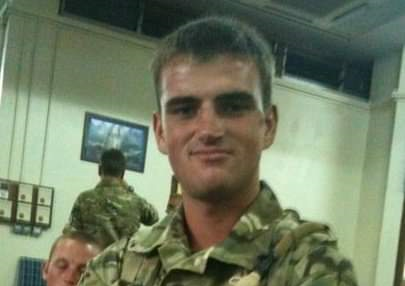Inquest into death of veteran Ben Riches concludes with suicide verdict
11 November 2022

The inquest into the death of Ben Riches concluded on 10 November 2022 following two days of evidence heard by Dr Adeley, Senior Coroner for Lancashire and Blackburn with Darwen.
Dr Adeley concluded that Ben Riches died at his home address on 11 April 2019 due to the impulsive use of a ligature whilst intoxicated and that he took his own life.
During the course of the inquest, the Coroner heard evidence from two psychiatric experts; Dr Troughton, who had experience in treating veterans and Professor Eilish Gilvarry, who has a specialist interest in alcohol addiction.
During the evidence, the following issues were highlighted:
- The experts stated that Ben had experienced a multiplicity of traumatic events and problems which had a major impact on his alcohol use and mental health. These included:
a. Ben experienced symptoms of PTSD from serving in operations Telic 11 (Iraq) and Herric 12 (Afghanistan). His MOD medical records showed that in 2012-2013 he had a clinical picture of excessive alcohol use and a sub clinical picture of PTSD;
b. That leaving the army would have caused in Ben loss of self worth, and equated to a loss of an entire way of life, a loss of one’s friends, a sense of purpose, uncertainty of employment in civilian life, having to navigate in the outside world and healthcare systems which don’t operate in the same way which is often a cause of stress for veterans;
c. Ben survived a significant house fire in 2015 which caused life changing injuries, particularly scarring to his head and neck and the loss of his hair. Ben had always been particular about his appearance and the scarring and burns was very difficult for him;
d. Ben’s diagnosis at the end of 2018/early 2019 of sarcoidosis and the significant limitations that this placed on his physical capabilities. - The experts acknowledged that the composite effect of these multiple traumas and losses would have been very difficult for this young man and proud soldier.
- Due to these traumatic events and losses, Ben increased his drinking, which increased his trauma, which then increased his propensity to low mood and impulsive acts of self harm.
- In the 12 months prior to Ben’s death, there were 5 very significant episodes of contact with mental health services including three Mental Health Act assessments in hospital. Ben’s medical notes reflect that throughout this time period his alcohol use was serious and inextricably linked to significant suicidal ideation and a high risk of impulsive self harm. However, in his summing up the coroner noted that on 16 August 2018 his thoughts of suicide occurred when Ben was sober, which the coroner described as a particularly worrying development as all other occasions were associated with significant intoxication.
- After each contact with mental health services, Ben would say he would engage with services in the community. The experts noted that many people do say that after an event of self harm. In particular, the experts were critical of the approach taken by the Trust in March 2019 given the significance of Ben’s developing psychiatric history, Ben’s significant attempts at self harm and the relatively short time frame over which these were developing which needed a considerably more assertive engagement of Ben who was a very distressed young man, should have been made.
- This should have included follow up by the home treatment team with involvement of the family and, at the very least, a booked appointment as patients, particularly veterans, feel more compelled to attend due to a sense of discipline.
- During the inquest, a number of issues came to light about the specific challenges that veterans as a community have in accessing healthcare when they return to civilian life. It was accepted in evidence that although they work on a similar basis military and civilian medical care is different. The experts highlighted that when in the military, appointments are made for soldiers with the GP and other medical services, and you will be seen very quickly. Unlike in the community where following Ben’s last contact with mental health services in the weeks before he died, the expectation was that he would have been followed up by psychological services within 6-8 months. Furthermore, the experts commented that a veteran will feel more compelled to go to appointments when made because of their experience of discipline.
- The inquest also highlighted the difficulties that veterans experienced navigating the civilian NHS. The experts commented that it is very hard for veterans to access help within an “opt in” system, where you have to refer yourself to services. The experts recognised that veterans also need someone with an understanding of their military cultural background in order to engage.
- The experts also noted that veterans also experience stigma which can be a barrier to care for both physical and mental health conditions. The most senior psychiatrist at the MOD accepted that there was an element of stigma to being referred to psychiatric services whilst serving in the military. In the community Ben’s family explained that there is a service culture in remaining strong and asking for help is a sign of weakness. The experts recognised that Ben minimised his symptoms when talking to mental health professionals and noted that this is common with veterans for a whole variety of reasons, including stigma.
Ben’s family is being represented by Gemma Vine, Ison Harrison Limited and Anna Morris from our Inquests and Public Inquiries team.
This update comes from the original media release from Ison Harrison Limited.





